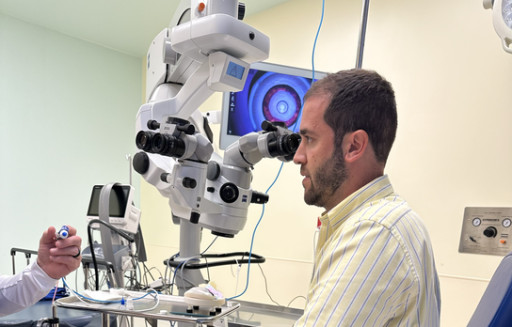All Categories
Featured
Table of Contents

Routine eye evaluations are essential for preserving great vision and finding possible eye wellness concerns early. The frequency of these exams can differ dramatically based on an individual's age, lifestyle, and overall health. Recognizing the recommended schedule for eye examinations can assist guarantee that people of all ages get ideal treatment and tracking for their eye wellness.
Newborns and Toddlers (0-2 Years)
For kids and babies, eye exams are vital for detecting any prospective vision problems beforehand. The American Academy of Ophthalmology recommends that a child's very first eye test must happen at around six months old. Throughout this first go to, the eye treatment professional will examine the kid's aesthetic advancement and check for any kind of apparent eye concerns.Following this first test, it is recommended that children have one more eye examination at age three. This go to will certainly concentrate on evaluating the child's general aesthetic feature, including eye alignment and the capability to track things. If no problems are found, the following test needs to be set up prior to the youngster begins institution, usually around age five or 6.
School-Aged Kids (6-18 Years)
Once children get to institution age, regular eye tests ought to be set up each to two years. Vision is essential for finding out and development, and lots of institutions conduct vision screenings. Nonetheless, these testings do not replace a thorough eye test by an eye treatment expert.For kids associated with activities or sports requiring substantial visual focus, yearly eye tests might be advisable. Furthermore, if a youngster exhibits indications of vision issues-- such as problem reviewing, squinting, or constant headaches-- a see to the eye doctor should be scheduled as soon as feasible.
Young Grownups (19-39 Years)
Young grownups normally have less vision modifications than older age teams, however regular eye examinations stay important. The general referral is to arrange an eye examination every 2 years during this period. People with details threat elements-- such as a family history of eye disease, diabetes, or those who wear call lenses-- must think about annual eye tests.Furthermore, those who spend significant time on electronic gadgets might experience digital eye pressure. If signs and symptoms such as dry skin, fatigue, or obscured vision happen, it might be smart to see an eye care specialist earlier.
Adults (40-64 Years)
Grownups aged 40 to 64 must set up eye exams every one to 2 years. Eye tests can additionally help detect other usual age-related conditions such as glaucoma, cataracts, and macular deterioration.If people in this age have threat elements like high blood pressure or diabetes, they may need even more frequent examinations to check their eye wellness very closely.
Seniors (65 Years and Older)
For seniors, routine eye examinations become a lot more vital. The American Optometric Organization advises that individuals matured 65 and older have an eye test at the very least yearly. Older adults go to a higher threat for various eye diseases, including cataracts, glaucoma, and age-related macular degeneration. Early discovery and therapy of these conditions can protect against vision loss and boost the lifestyle.Verdict.
Comprehending the appropriate routine for eye tests based upon age is vital for preserving optimal eye health throughout life. From babies to senior citizens, regular eye evaluations play a vital duty in discovering concerns early and making sure that vision stays sharp. By sticking to these standards and seeking advice from an eye treatment expert, people can take proactive actions toward maintaining their vision and overall wellness. Whether it's a youngster's initial visit or an elderly's annual check-up, focusing on eye care is a financial investment in long-lasting health.Latest Posts
Carpet Interiors Floor & Home
Published Nov 23, 24
4 min read
Picking the Right Vehicle Repair Service for Your Needs: A Step-by-Step Technique
Published Nov 23, 24
0 min read
Why Metal Roofing is Ideal for Commercial Properties
Published Nov 23, 24
2 min read